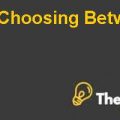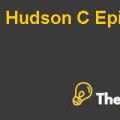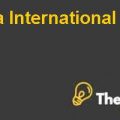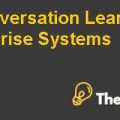Introduction
Definition
Behavioral Economics is the study of the combination of psychology and economics. It involves the decision-making processes that we, as individuals, make. The two most asked questions in behavioral economics are, firstly, whether the assumptions made on the maximization of profit by the economists relate to actual human behavior or not and secondly, whether normal humans maximize utility or not.
Discussion
The rational choice theory of economics states that when people are offered with multiple options, they first analyze the cost and benefits of each of the options and then opt. the one that is best for them and the one which maximizes their level of satisfaction. But this theory is based on the assumption that people are rational and they are self-controlled and their decision-making is not affected by their emotions or any other external factor.
Behavioral economics, on the other hand, explains that people are not rational and any decision that they make is always affected by their emotions and a number of different external factors. Behavioral economics focuses on the psychology and economics together, to analyze the reason behind this, i.e. why do people sometimes makes decision that are not rational, and how and why human behavior does not follow the economic models. Each decision, be it a small one like paying for tea, or an important one like deciding which shares to buy are affected by people’s emotion and behavioral economics is the study that tries to evaluate the decision-making process of humans.
Seven Common Mental Money Mistakes Harvard Case Solution & Analysis
As mentioned above, behavioral economics uses different psychological experimentation in order to develop theories that would explain the human decision-making process and would also help to identify the biases in terms of the way humans think and feel. Behavioral economics is also trying to change the basic concepts and thinking of economists about the perception of people and their preferences. Behavioral economics simply states that people do not always analyze the cost and benefits of the options available to them. And, it is not necessary that every time they do so, they are doing it right. Human thinking is a study that involves insufficient knowledge, processing and feedback, and it is often the case that there is uncertainty involved. Because of this, the decisions that people make are affected by the context in which, the decision-making process is taking place. At the end of the day, most of the decisions made by people are not the result of careful analysis of costs and benefits. (Samson, 2014)
Question No. 1
The first question is about the discount at the suit and whether I would travel 5 blocks to purchase the same suit at a discount. The things I would take into consideration would involve the time I have for shopping and the time and cost to travel 5 blocks away. If I am in a hurry and moreover, I have to travel by walk to go to other store, then I would prefer not to and I would buy the suit at 500 Euros. Secondly, taking my past experiences into account, I think I would have made the same decision anyway.............
This is just a sample partical work. Please place the order on the website to get your own originally done case solution.











